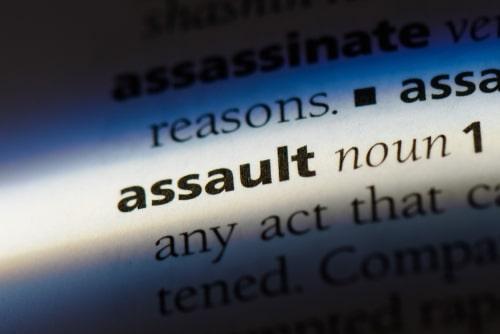817-599-7005
Recent Blog Posts
Probation Violations in Texas
 Many studies have shown that incarceration as punishment for crimes might be more harmful to society than helpful. Being removed from the people you love and imprisoned with others who have committed crimes can reinforce the idea that you are not welcome in your community, and the isolation can keep you in a life of crime rather than motivate you to change your ways.
Many studies have shown that incarceration as punishment for crimes might be more harmful to society than helpful. Being removed from the people you love and imprisoned with others who have committed crimes can reinforce the idea that you are not welcome in your community, and the isolation can keep you in a life of crime rather than motivate you to change your ways.
That is why judges sometimes offer probation instead of incarceration, especially for nonviolent crimes. The idea is that receiving this second chance can influence you to turn your life around. Probation comes with various conditions and requirements that you must abide by or face possible imprisonment. Accusations of probation violations are a serious matter that can have severe consequences. This article will explain what happens when someone is accused of violating the terms of their probation. If this happens to you, speak with a trusted Weatherford, TX criminal defense lawyer who can fight hard to keep you out of jail.
Will I Go to Jail for the Unlawful Carry of a Gun?
 While Texas tends to have more relaxed gun laws than other states, and these laws typically favor the gun owner, you are still subject to certain restrictions about where you can carry your weapon. If you plan to own a firearm, it is important to understand where you can and cannot carry it, ensuring you avoid a weapons charge and associated penalties, such as jail, if you are caught unlawfully carrying your firearm.
While Texas tends to have more relaxed gun laws than other states, and these laws typically favor the gun owner, you are still subject to certain restrictions about where you can carry your weapon. If you plan to own a firearm, it is important to understand where you can and cannot carry it, ensuring you avoid a weapons charge and associated penalties, such as jail, if you are caught unlawfully carrying your firearm.
A knowledgeable Texas weapons charges lawyer can help you build a defense if you find yourself facing a weapons charge for unlawful gun carry.
When Is It Considered Unlawful Gun Carry?
In Texas, the state’s Penal Code outlines the circumstances where carrying a weapon is unlawful. Carrying a weapon while the following apply may result in an unlawful carry charge:
What Is Aggravated Assault in Texas?
 Texas defines assault and aggravated assault differently, and these are two different criminal charges in the state. If you are facing an aggravated assault charge, it is important to understand the difference between aggravated and simple assault, including the penalties that aggravated assault carries. An experienced Texas aggravated assault defense attorney can help you further understand your rights and legal options concerning these charges.
Texas defines assault and aggravated assault differently, and these are two different criminal charges in the state. If you are facing an aggravated assault charge, it is important to understand the difference between aggravated and simple assault, including the penalties that aggravated assault carries. An experienced Texas aggravated assault defense attorney can help you further understand your rights and legal options concerning these charges.
Understanding Texas Aggravated Assault
Unlike ‘simple assault,’ which is generally a misdemeanor charge, aggravated assault in Texas can be penalized quite harshly. The Texas Penal Code defines aggravated assault as the following:
- Knowingly, recklessly, or intentionally causing serious bodily injury to another person, including the other person’s spouse
Challenging a First-Offense DWI Charge in Texas
 Being arrested and facing criminal charges can be an overwhelming experience, especially if this is your first run-in with the law. For example, if you are facing first-offense DWI charges in Texas, you may be unaware of the different legal strategies available to you as you look to fight these charges. Contact an experienced criminal defense attorney to learn more about your options.
Being arrested and facing criminal charges can be an overwhelming experience, especially if this is your first run-in with the law. For example, if you are facing first-offense DWI charges in Texas, you may be unaware of the different legal strategies available to you as you look to fight these charges. Contact an experienced criminal defense attorney to learn more about your options.
At Soraya Joslin, P.C., Attorney Joslin is a seasoned legal professional who has worked on countless cases defending clients against first-offense DWI charges. When you retain Attorney Joslin’s services, you can feel confident knowing that you have an attorney who will work with you through every step of your case to ensure you have the best available chance at beating the charges and getting on with your life. Here are some of the strategies she may use to fight your charges.
Assault with a Deadly Weapon in Texas
 Facing an assault with a deadly weapon charge in Texas carries many issues of concern. The first of which is hiring experienced and knowledgeable legal representation to protect your rights. An attorney can help you understand the charges and mount a solid defense to get the charges dropped or reduced.
Facing an assault with a deadly weapon charge in Texas carries many issues of concern. The first of which is hiring experienced and knowledgeable legal representation to protect your rights. An attorney can help you understand the charges and mount a solid defense to get the charges dropped or reduced.
Aggravated Assault
In Texas, assault is placed into two categories – simple assault and aggravated assault. Simple assault is when a person knowingly, recklessly, or purposefully greatly injures another person or threatens to do so. Aggravated assault is an elevated form of simple assault that occurs when a person causes serious bodily harm or flashes a deadly weapon during the assault. Texas maintains aggravated assault as a second-degree felony. This charge can escalate to a first-degree felony when other aggravating circumstances are involved, such as using a deadly weapon.
The Consequences of Subsequent DWI Convictions
 Repeat driving while intoxicated (DWI) offenders will likely face considerably harsher penalties than that of a first-time offender. Most first-time DWI offenders will receive a misdemeanor charge with a fine of up to $2,000 and a minimum driver’s license suspension of three months. However, even a first-time DWI offense can become a felony when specific criteria are met. Legal representation is crucial when dealing with a second, third, or subsequent DWI charge. Contact a lawyer with DWI defense experience to see what can be done.
Repeat driving while intoxicated (DWI) offenders will likely face considerably harsher penalties than that of a first-time offender. Most first-time DWI offenders will receive a misdemeanor charge with a fine of up to $2,000 and a minimum driver’s license suspension of three months. However, even a first-time DWI offense can become a felony when specific criteria are met. Legal representation is crucial when dealing with a second, third, or subsequent DWI charge. Contact a lawyer with DWI defense experience to see what can be done.
What Texas Considers a DWI Offense
Driving while intoxicated in Texas means that a driver did not have regular use of their mental or physical faculties due to the use of alcohol, drugs, or another controlled substance while operating a motor vehicle in a public place. A DWI charge can also be issued if the driver has a blood alcohol concentration (BAC) of 0.08 percent or higher. A first-time offense without aggravated factors is considered a Class B misdemeanor and requires a minimum jail term of 72 hours. If that same driver is found to have an open alcohol container in their immediate possession, the jail term is extended to a minimum of six days. A BAC of 0.15 percent or higher raises the charge from a Class B misdemeanor to a Class A misdemeanor.
What To Do About False Domestic Violence Allegations
 False allegations can create a devastating impact on anyone’s life. Being falsely accused of domestic violence can quickly turn your life upside down in ways you may not imagine. Everything you have worked hard to achieve and the relationships you have made along the way can immediately begin to crumble beyond repair. So, what can be done about the false allegations being made against you? Though it can feel overwhelming, securing yourself an attorney can be your best bet in defending yourself against the allegations.
False allegations can create a devastating impact on anyone’s life. Being falsely accused of domestic violence can quickly turn your life upside down in ways you may not imagine. Everything you have worked hard to achieve and the relationships you have made along the way can immediately begin to crumble beyond repair. So, what can be done about the false allegations being made against you? Though it can feel overwhelming, securing yourself an attorney can be your best bet in defending yourself against the allegations.
The Sad Reality of False Domestic Violence Allegations
Even proof of innocence may not be able to put the pieces of your life back together after being falsely accused of domestic violence. Regardless of a revenge plot of a jilted lover or a frame job just for public attention, a domestic violence allegation can be challenging to rebuild after the charges have been proven false. But there is still hope. These claims are pretty common, and as such, there are things to look for and ways in which to defend yourself from false allegations.
When Assault Becomes a Felony in Texas
 Assault accusations are serious in the state of Texas. Simple assault is usually just a misdemeanor but can quickly become a felony, depending on the circumstances. Understanding how and why you receive a felony assault charge can go a long way in figuring out how to defend yourself. A skilled attorney with experience in assault charge defenses is a great first step toward getting the help you need.
Assault accusations are serious in the state of Texas. Simple assault is usually just a misdemeanor but can quickly become a felony, depending on the circumstances. Understanding how and why you receive a felony assault charge can go a long way in figuring out how to defend yourself. A skilled attorney with experience in assault charge defenses is a great first step toward getting the help you need.
What is Assault?
Simple assault is a misdemeanor offense that occurs when an individual intentionally, knowingly, or recklessly commits bodily harm or injury to another individual, which includes their spouse. Additional assault is outlined as “intentionally or knowingly threatening bodily injury or doing so to provoke or offend.” A simple assault charge will normally be categorized as a Class C misdemeanor.
What is Required to Prove Sexual Assault?
 Sexual assault accusations can carry with them many future complications for the accused. Even without evidence, a simple accusation can mar a person’s reputation for life. In Texas, the burden of proof falls on the prosecution to prove beyond a reasonable doubt that the accused committed the act. A good criminal defense attorney with experience in sex crimes can provide the defense you would need to fight the charges.
Sexual assault accusations can carry with them many future complications for the accused. Even without evidence, a simple accusation can mar a person’s reputation for life. In Texas, the burden of proof falls on the prosecution to prove beyond a reasonable doubt that the accused committed the act. A good criminal defense attorney with experience in sex crimes can provide the defense you would need to fight the charges.
The Meaning of Consent in Texas
Any sexual acts committed in the state of Texas require the consent of both parties involved. Consent is the approval or agreement to commit a sexual act or acts. Without consent, what would normally be considered an acceptable act may now be considered a crime. Being able to distinguish between apparent consent and a lack of consent is important for avoiding legal trouble altogether.
What is the Difference Between Assault and Battery in Texas?
 Assault and battery are two closely related crimes, but there is a difference between them. Assault only requires the threat of violence, while battery, or aggravated assault, requires intentional and seriously harmful physical contact.
Assault and battery are two closely related crimes, but there is a difference between them. Assault only requires the threat of violence, while battery, or aggravated assault, requires intentional and seriously harmful physical contact.
In Texas, assault is defined as "intentionally, knowingly, or recklessly threatening or causing bodily harm." Aggravated assault adds to this definition through “serious bodily injury and use or exhibit of a deadly weapon."
Regardless of whether you have been charged with assault, aggravated assault, or both, it is important to speak to an attorney. They can help you understand the charges, mount a defense, and protect your rights under the law.
What are the Penalties for Assault and Battery?
Penalties for assault will vary depending on the circumstances. For a simple assault, the general punishment is no more than a year in jail and a fine of up to $4,000. However, in some cases, a simple assault can be bumped up to a third-degree felony which can result in two to ten years in prison and a fine of up to $10,000.



